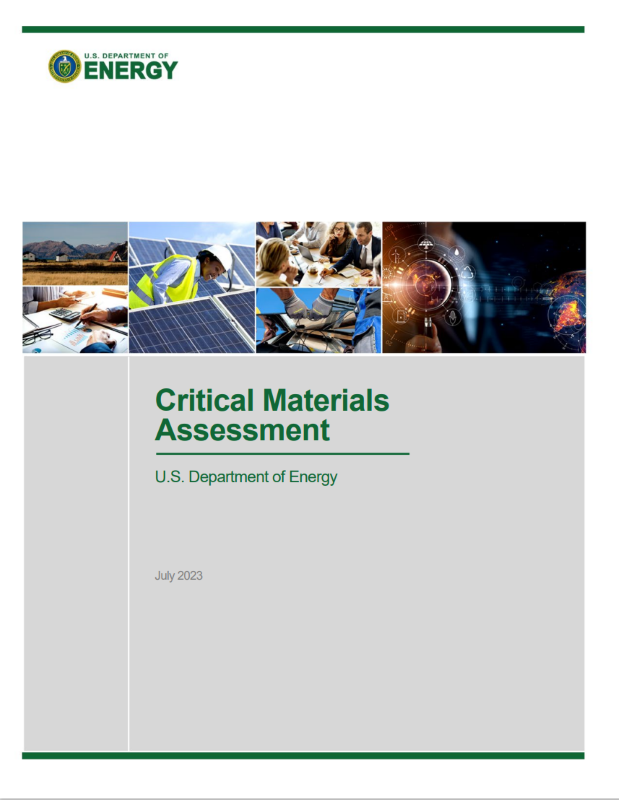The U.S. Department of Energy (DOE) released its 2023 Critical Materials Assessment, which evaluated materials for their criticality to global clean energy technology supply chains. Based on the results of the Assessment, DOE has determined the 2023 DOE Critical Materials List of energy-specific critical and near-critical materials through 2035. In addition to informing crosscutting DOE priorities including the Critical Materials Research, Development, Demonstration, and Commercialization Application Program (RDD&CA), the DOE Critical Materials List will inform eligibility for tax credits under the Inflation Reduction Act 48C.
The Assessment focuses on key materials with high risk of supply disruption that are integral to clean energy technologies. The final list includes aluminum, cobalt, copper, dysprosium, electrical steel (grain-oriented steel, non-grain-oriented steel, and amorphous steel), fluorine, gallium, iridium, lithium, magnesium, natural graphite, neodymium, nickel, platinum, praseodymium, terbium, silicon, and silicon carbide.
Preview the report here:
 Loading...
Loading...
More About this Resource
Publisher: U.S. Department of Energy
Date: July 1, 2023
Countries: United States
States: None
